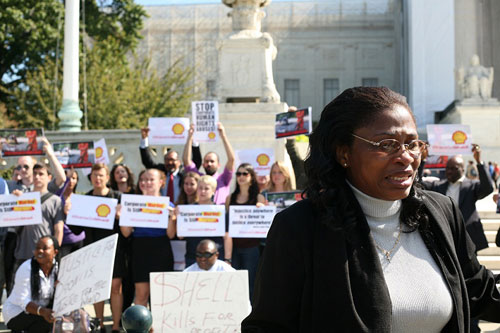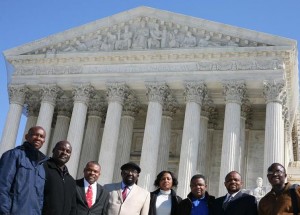
Esther Kiobel stands alongside human rights activists outside of the US Supreme Court on Oct 1, 2012. © Erica Razook
Outside the United States Supreme Court on Monday, a staff member from Earthrights handed Esther Kiobel a page to read. “It’s her story,” he said to a small crowd of dedicated activists holding “#shameonshell” signs. Ms. Kiobel began to read, but soon put the paper down and started talking.
“In an executive meeting, they were trying to get my husband to help get rid of Ken,” she said, speaking of Ken Saro-Wiwa, the environmental activist who led a campaign against Shell’s operations in the Niger Delta, and who was executed by the Abacha government in 1995, together with Esther’s husband Barinem and seven others.
“I was myself charged. I was locked up twice. At night sometimes I go to sleep but then wake up and write what comes out of my head. I was stripped naked. Locked up twice.”
